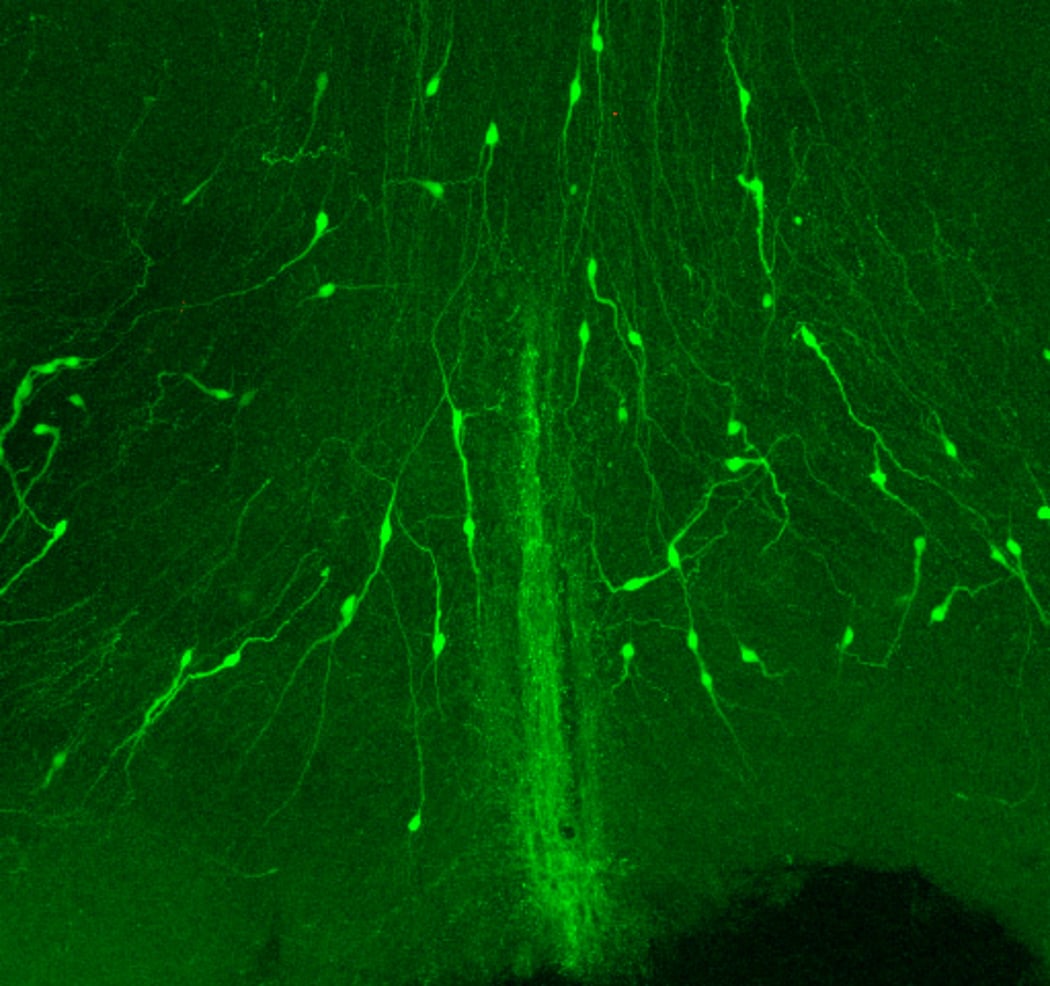
GnRH neurons in the brain Photo: supplied
Having a child can be a real challenge!
It's estimated that a quarter of couples trying to conceive in NZ struggle to do so. Traditional thinking has placed an emphasis on things going wrong 'below the belt', with either the eggs or the sperm. But could it also be in the mind?
New research by Professor Allan Herbison's team at the University of Otago reveals the significance of the brain in conceiving a child. His research has shown that 1 in every 3 cases of infertility can be put down to a failure of the brain to send out the right signals.
Professor Herbison has discovered that neurons called Kisspeptins are responsible for fertility. Kisspetins have to send signals via the pituitary gland to the ovaries or testes every hour for conception to be able to occur.
This raises hopes that in the future, Kisspeptin could be used as a therapy in helping people conceive. This hormone mechanism could also be manipulated as an effective form of contraception.

